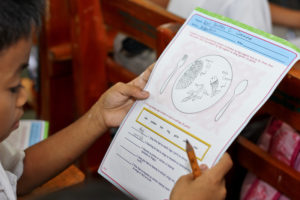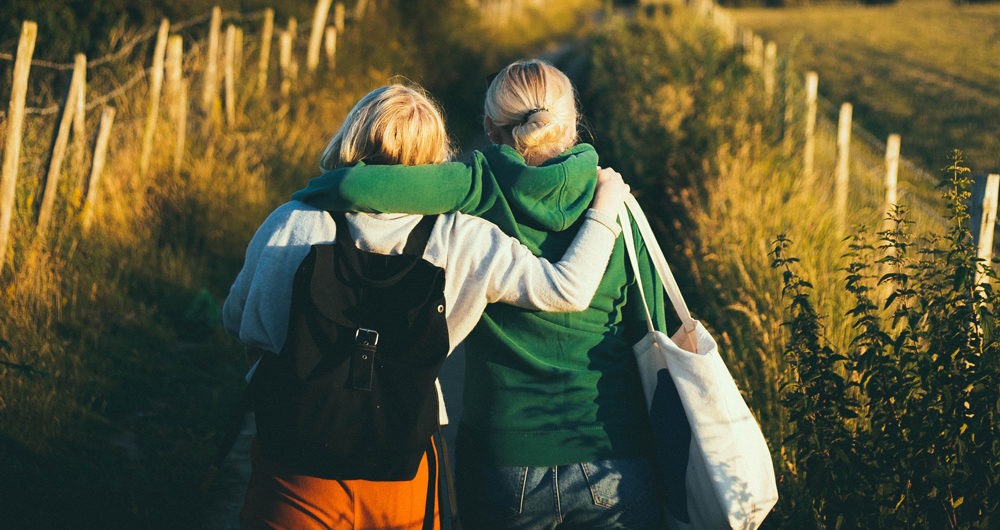Small improvements to our food systems can have a global impact. Every little bit helps and we need to work together. Reducing food waste, employing circular business models and implementing public sector policies and programmes centered around sustainability can change food systems for the better.
These ideas were discussed during the first in the series of the Swedish national Food Systems Dialogues on January 25, 2021. National dialogues are conducted in preparation for the UN Food Systems Summit and their purpose is to discuss how individual countries can contribute to a sustainable transformation of the global food system.
The meeting featured the presentation of the “Sustainable food systems – knowledge, innovation and cooperation” report, prepared by the Swedish FAO Committee, and included a discussion and a workshop with Swedish food system actors.
Consumer as a starting point
The ongoing trends in Sweden indicate consumer interest in locally produced food and plant-based protein. Håkan Johnsson, Head of Kalmar Ölands Trädgårdsprodukter, confirmed it’s true, reporting that he struggles to meet the demand for Swedish-grown beans and peas, which he processes into legume flour, pasta or canned and frozen products.
These consumer trends may be a sprouting transition to plant-based diets, which, according to the EAT-Lancet Report, will play a vital role in the realization of the Paris Agreement and the Sustainable Development Goals (SDGs). And although consumers cannot bear the entire responsibility for food system change, they can contribute by making sustainable choices.
An example of innovation from the Swedish food retail sector is the Karma app, a service that allows restaurants, grocery stores and cafés to sell food that’s close to the expiration date at a reduced price. The app provides a win-win solution: consumers buy cheaper food and retailers/producers generate income from items that would have been otherwise wasted.
Elsa Bernadotte, one of Karma’s founders, believes in “effortless sustainability”, a notion that it’s possible to act more sustainably without radical sacrifices. According to Bernadotte, sustainability should also make business sense. Karma is a clear example of this vision in action. The app has over 1.5 million users, which ensures a continued food waste reduction along with a small profit for the cooperating businesses.
The public sector reaches many
Karin Lindow, Coordinator of the Swedish National Program for Food Waste Diminution at the Swedish Board of Agriculture, provided a shocking perspective on how big the food waste problem actually is: “If you take global food waste and treat it as a country, it would be the third largest emitter of greenhouse gases after China and the USA.”
In an effort to target food waste, the Swedish Environmental Protection Agency, the National Food Administration and the Swedish Board of Agriculture have created a joint action plan. This public sector collaboration has led to the inception of a voluntary agreement between the industry and the government and to the proposal of a national goal for food waste reduction. The agencies have also initiated measures that make it easier for consumers to do the right thing.
“There are good conditions for us to succeed. But everyone must help. Shops and restaurants, for example, can do a lot to make it easier for consumers not to buy more than they need,” said Karin Fritz, Project Manager at the National Food Administration.

Another effective entry point is public meals. Schools and healthcare facilities serve three million meals a day, which adds up to 10 billion Swedish Krona (SEK) a year. Annica Sohlström, Director-General at the Swedish Food Agency, explained that public meals hold untapped potential.
While consumers can influence demand, Annica believes that it can also be formed by what is offered. Public procurement can support local producers and influence norms and preferences. Public meals are a blanket social policy and provide benefits regardless of income group, an important advantage, even in an affluent Sweden, which like many other countries, has higher overweight and obesity amongst individuals with lower education and income.
School meals can promote nutrition and climate action while contributing to education. Liselotte Schäfer Elinder, Adjunct Professor of Public Health Sciences at the Department of Global Public Health at Karolinska Institutet, told about the Optimat project that has developed a school meal optimization tool.
The challenge with planning sustainable school meals is the combination of four conditions: They have to be healthy, climate-friendly, cost-effective and accepted by the school kids. Optimat users can make food purchase decisions with different parameters like greenhouse gas emissions and adapt school meals accordingly, without extra costs and food waste. The pedagogical potential of food systems should not be forgotten either, they can be tackled from various angles and in nearly all subjects.
Collaboration is the answer
Various speakers highlighted the crucial role of joint work for the success of their endeavors. For instance, municipalities engaged with food companies, schools and citizens to form sustainable regions. Anneli Kuusisto, who is responsible for the Growth Strategy of Härnösand Municipality, thinks that the private sector shouldn’t be left out and needs “favorable conditions to be part of the transformation in a realistic way”.
Madeleine Linins Möller, Project Lead for Future Food at Axfoundation, presented a project that leverages both circularity and collaboration. 50% of all seafood consumed in Sweden is farmed. Fish meal is often produced from wild-caught fish and cereals that need to be imported.
A solution to this unsustainable farming system is to feed fish with insects, which in turn are fed with organic waste like discarded bread or vegetables. Madeleine is hoping that the European Union’s legislation will soon allow insect feed for other animal species such as pigs or poultry. This collaborative circular innovation doesn’t only provide a more sustainable way to feed fish, but also reduces food waste.
A call for global transformation
There is no denying that the food system challenges faced by Sweden and globally are great. Malnutrition and non-communicable diseases, social and economic inequalities and environmental degradation are on the rise worldwide. But collaboration, knowledge exchange and dialogue can help us overcome these challenges, ensuring planetary and human health as well as thriving economies.
Per Callenberg, State Secretary to the Swedish Minister of Rural Affairs, emphasized that the COVID-19 pandemic revealed the fragility of our food systems and underscored the importance of cooperation and bold action. “Sustainable food systems must be as high on the policy agenda as transport and energy issues, so that everyone can keep up and work in the same direction,” Annica Sohlström clarified.
Sweden was one of the first countries to conduct a national dialogue ahead of the UN Food Systems Summit. This event will be followed by two regional dialogues in Södertälje and in Härnösand, a possible Nordic dialogue and further independent dialogues, one of which will be conducted by the World Wildlife Fund (WWF Sweden).
Reporting by Magdalena Knobel and David Falk, Communications Consultants at SIANI.
